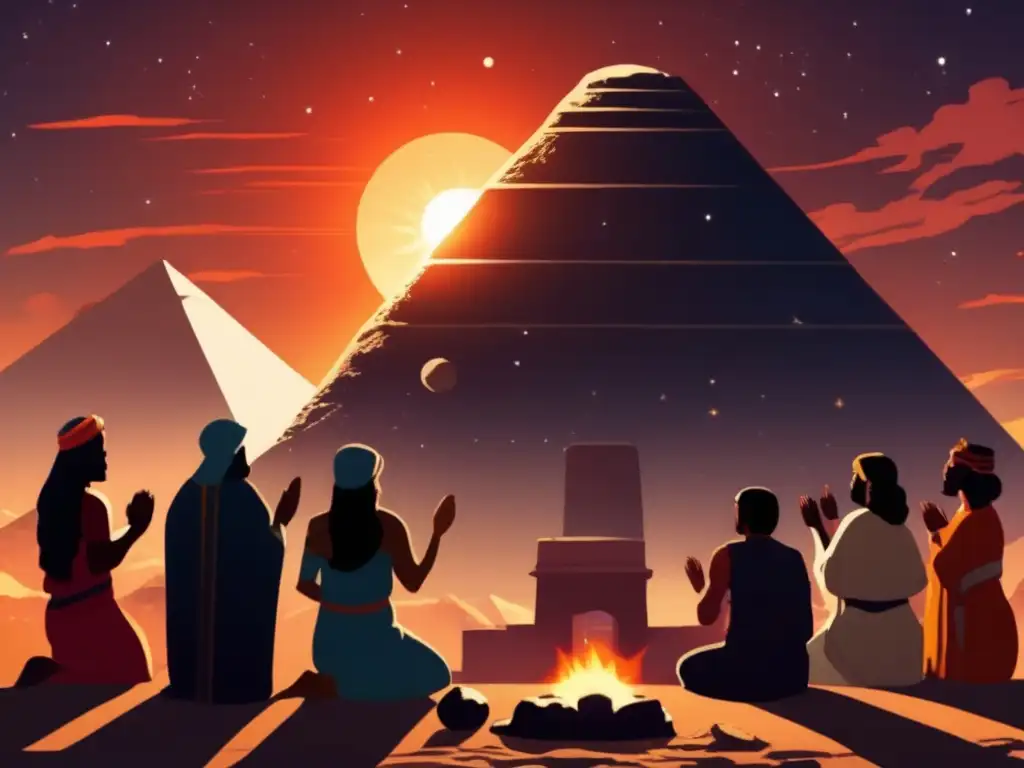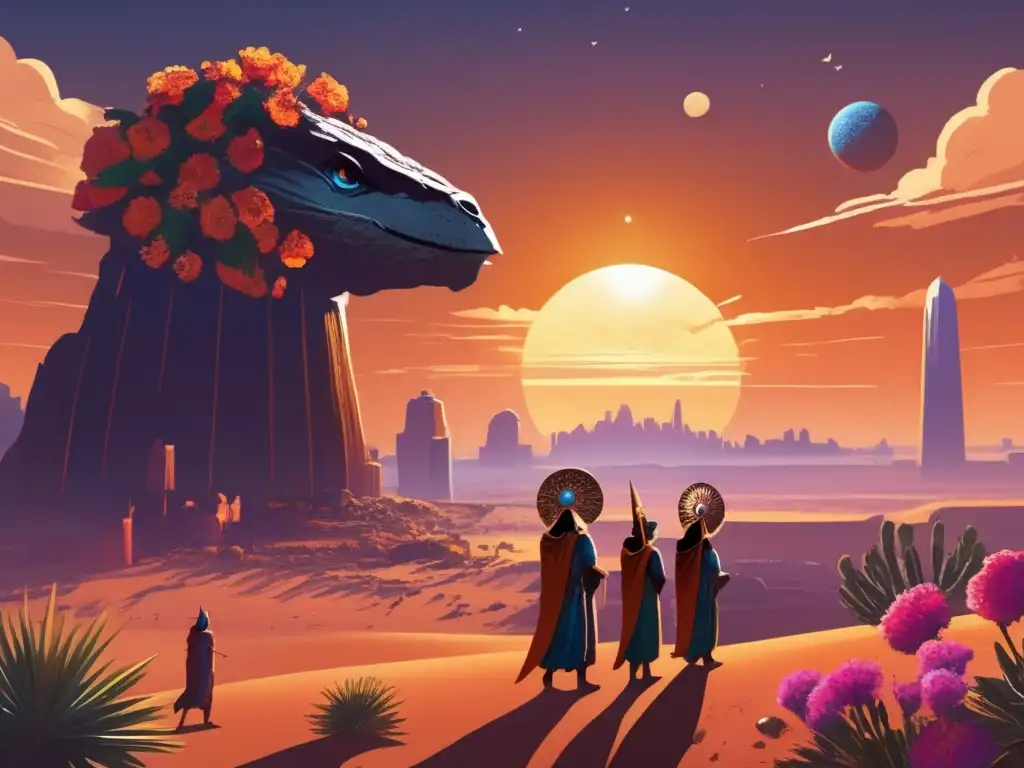In The Wake Of The Asteroid: Babylonian Legends Explored

Introduction
Asteroids have fascinated humanity since ancient times, and they have been the subject of many legends and myths. In this article, we will explore the Babylonian legends related to asteroids, analyzing their cultural significance and providing insights into how these celestial objects were perceived by ancient civilizations. Through this journey, we will gain a deeper understanding of the historical and mythological context surrounding asteroids.
Babylonian Legends

The Legend of Marduk and Tiamat
One of the most famous Babylonian legends related to asteroids is the story of Marduk and Tiamat. According to the legend, Tiamat was a chaotic goddess who threatened to destroy the world, and Marduk was a young god who rose to the challenge of defeating her. Marduk pursued Tiamat through space, and in their final battle, he struck her with an arrow that split her in two. The halves of Tiamat formed the heavens and the earth, while Marduk created the stars and planets from her remains.
This legend reflects the Babylonian belief in the power and divinity of the celestial bodies. It also highlights the destructive potential of asteroids and comets, which were seen as harbingers of change and upheaval.
The Enuma Elish
The Enuma Elish is a Babylonian creation myth that describes the origins of the universe. According to the myth, the world was created through a series of battles between the gods and monsters. The most notable of these battles was between the god Marduk and the monster Tiamat, which we mentioned earlier.
The Enuma Elish tells us that the Babylonians viewed asteroids and other celestial bodies as divine beings that played a critical role in the creation and maintenance of the universe. They believed that each planet and star had a specific purpose and influence on the world, and that by studying their motions, they could predict events and gain insight into the future.
Asteroids in Babylonian Culture

Astronomy and Astrology
The Babylonians were skilled astronomers and astrologers. They carefully observed the movements of the stars and planets, believing that they held the key to the fate of individuals and nations. The Babylonians were the first civilization to develop an organized system of astrology, which they used to interpret celestial phenomena and make predictions about the future.
Due to their expertise in astronomy and astrology, the Babylonians were able to map the positions of the stars and planets accurately. They also developed a rudimentary system of astronomical units, which they used to measure time and distance. Their observations and calculations laid the foundation for modern astronomy and contributed significantly to the development of scientific thought.
Religion and Mythology
Asteroids and other celestial bodies played a significant role in the religious and mythological beliefs of the Babylonians. They believed that gods and goddesses resided in the stars and planets, and that these beings could influence the world in various ways.
For example, the Babylonians associated the planet Venus with the goddess Ishtar, who was the deity of love and fertility. Similarly, they attributed the god Marduk with the planet Jupiter, which they believed was the most powerful planet in the solar system. These associations show how deeply embedded asteroids and other celestial bodies were in Babylonian culture.
Frequently Asked Questions

-
Did the Babylonians believe that asteroids were divine beings?
Yes, the Babylonians believed that many celestial bodies, including asteroids, had divine qualities. They saw them as manifestations of the gods and goddesses and attributed specific meanings and influences to each of them.
-
Did the Babylonians use asteroids for astronomical observations?
Although the Babylonians were aware of asteroids, they did not have the technology to observe them directly. However, they used the positions of stars and planets to identify the presence of asteroids and comets and to make predictions about their movements and effects on the world.
-
What impact did Babylonian beliefs about asteroids have on later cultures?
The Babylonian legacy in astronomy and astrology was profound and long-lasting. Their observations and calculations formed the basis of scientific thought in these fields for centuries, and their influence can still be seen in modern astronomy and astrology.
-
Did Babylonian astronomers make any significant discoveries about asteroids?
While the Babylonians did not discover the existence of asteroids, they made significant contributions to the field of astronomy. Their work laid the foundations for later astronomers, who built upon their knowledge and insights to make new discoveries about the universe.
-
How did Babylonian beliefs about asteroids compare to those of other ancient civilizations?
Asteroids and comets were a subject of fascination and curiosity for many ancient cultures, including the Greeks and the Romans. However, the Babylonians were unique in their sophisticated understanding of celestial phenomena and their ability to use this knowledge to make accurate predictions about the future.
Conclusion
The Babylonian legends related to asteroids provide a valuable insight into the cultural and religious significance of these celestial objects. Through their beliefs and observations, the Babylonians demonstrated a deep respect for the power and mystery of the universe. They inspired generations of astronomers and astrologers, and their legacy lives on today in the study of astronomy and astrology. We hope that this article has provided you with a deeper understanding of the historical and mythological context surrounding asteroids.
Thank you for reading, and we encourage you to share your thoughts on this topic in the comments section below.
Additional Resources

- The Enuma Elish: The Babylonian Creation Myth
- Marduk: The Babylonian God of Creation
- Astronomy: Britannica Online Encyclopedia
 Stargazers Of The Past: Asteroids In Ancient Arabian Legends
Stargazers Of The Past: Asteroids In Ancient Arabian Legends Sumerian Myths: Decoding The Asteroid Enigma
Sumerian Myths: Decoding The Asteroid Enigma Earth Shakers: Asteroids In Roman Mythology
Earth Shakers: Asteroids In Roman MythologyIf you want to discover more articles similar to In The Wake Of The Asteroid: Babylonian Legends Explored, you can visit the Asteroid Mythology category.
Leave a Reply

Articulos relacionados: